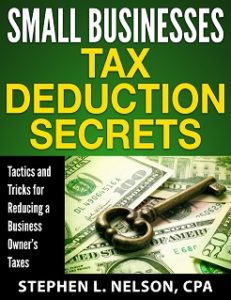
Regularly during tax season, we see clients with a pretty large volume of trading activity across a number of brokerage accounts. And unfortunately this creates a potential problem due to an arcane bit of tax law known as the wash sale rules.
I want to talk a little bit about how these rules work and why they commonly create a problem for active traders.
After that discussion, I’ll then offer up one tiny suggestion to make accounting for wash sales a bit more manageable.
Wash Sale Basics
Let me start with the basics, including the definition of what a wash sale even is and why you make an adjustment on your tax return’s Schedule D.
A wash sale occurs when you sell a security (such as stock) at a loss then you repurchase either the same security or a substantially identical security within 30 days of selling the old stock.
If you effect a wash sale and trigger a loss, tax law says you don’t get to deduct the loss. Rather, the loss needs to be added to the basis of the newly purchased “replacement” stock.
This might sound a bit complicated, and sometimes it can be, but the logic makes public policy sense.
People used to do these wash sales as a way of “realizing” losses on stock that had declined (perhaps temporarily) in value, thus generating a loss for tax purposes that could offset taxable income.
But the IRS decided that this was an unfair tax loophole to exploit since the transaction “created a loss” without actually changing the taxpayer’s financial position. As a result, they created the wash sale rules we’ve been talking about here.
And let me just emphasize something so there’s not any confusion. Because a wash sale loss adjustment adds to the basis of the repurchased security, you as the taxpayer do ultimately get to recognize the loss eventually. It’s just that the loss will be recognized when the repurchased security is ultimately sold (assuming that the repurchased security isn’t ultimately sold in another wash sale, of course).
A Quick Clarification
I want to provide one quick clarification since we’re into the discussion.
This concept of “substantially identical securities” usually means purchasing an option or similar type of contract to buy the security. However, the true rule is that you have to look at the “facts and circumstances” of a particular transaction to tell if it’s substantially identical or not. (If that definition sounds wishy-washy, it’s because it is.)
But tax law is smart to call things that quack and swim like a duck a “duck.” For example, if you use options to avoid identicalness but really you’ve constructed something where the items you’re buying and selling are substantially identical, you should probably assume the wash sale rules apply.
Wash Sale Gotchas
Obviously wash sales and wash sale loss adjustments don’t, on their face, seem that tricky. You can see that from the short discussion here.
Furthermore, as you may know if you’re reading this blog post, brokers actually track wash sales of identical securities that occur within the same account. (That’s why, for example, wash sale adjustments show up on the 1099-B from your brokerage company.)
Given all this, what could possibly go wrong? Well, at least three gotchas can occur.
- The actual rule for brokers is that they have to track wash sales for identical securities within the same account. But think what this means. If you have wash sales occurring across accounts, the broker won’t track that. That means you will need to track that.
Note: Your tax return preparer probably won’t be able to track this. And if it is tracked, and you have a large volume of trades, plan to spend more on tax preparation than you spend on your trading commissions. By the way, our offices won’t (just as matter of mental health) do this cross-account tracking of wash sales except in extreme cases. - Remember that the rule for brokers is wash sales of identical securities within the same account. But remember that taxpayers have to report wash sale treatment for substantially identical securities. This means you may have wash sales your broker doesn’t report because there’s a difference between “identical” and “substantially identical” securities. (For example, shares of Apple stock may be substantially identical to Apple call options.)
- Finally, there’s a “related party” rule that says that if you sell a security and a related party (such as your spouse) purchases a substantially identical security within 30 days, that also counts as a wash sale.
By the way, if you sell a security and your business or your retirement account purchases a substantially identical security, that counts too because your business or IRA counts as a related party.
Our One Tip
Other than avoiding trading, we don’t have any magical shortcuts to offer you.
But we do have one practical idea. Because the big brokerage outfits will track wash sales of identical securities that occur within the same account, you want to always trade a particular security within the same account.
Don’t, for example, trade Apple stock across multiple accounts. Always trade it in your one account.
Are You a Small-Business Owner Paying Too Much Tax?
 Small-business owners often don’t maximize their legitimate tax deductions. They don’t, for example, structure their business operations to protect legitimate deductions. They frequently don’t do enough to create new deductions. And rarely do they understand how to recycle, or double-deduct, amounts that can be used more than once.
Small-business owners often don’t maximize their legitimate tax deductions. They don’t, for example, structure their business operations to protect legitimate deductions. They frequently don’t do enough to create new deductions. And rarely do they understand how to recycle, or double-deduct, amounts that can be used more than once.
That is a financial tragedy. The business owner who gets smarter about tax deductions can save a bundle.
If you’re thinking that maybe you can do a better job with your tax deductions, consider our $40 ebook Small Businesses Tax Deduction Secrets.
This 70-page ebook provides detailed instructions about how you can save thousands of dollars annually in income and related taxes simply by more effectively using legitimate small-business tax deductions. Interested in more information? Click here.
Tip: If you are one of our clients, don’t purchase this ebook—or any of our other ebooks. Just email us and ask for your complimentary copy.
Immediately Downloadable & Money-Back Guarantee
The book is instantly downloadable. You get the ebook when you purchase it.
Also, we provide a money-back guarantee. If you don’t find the information you need or want, we will return your purchase price. Just email us and request your refund.